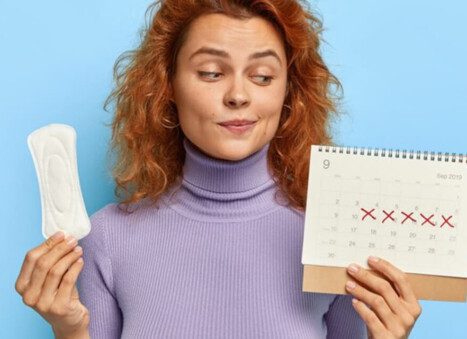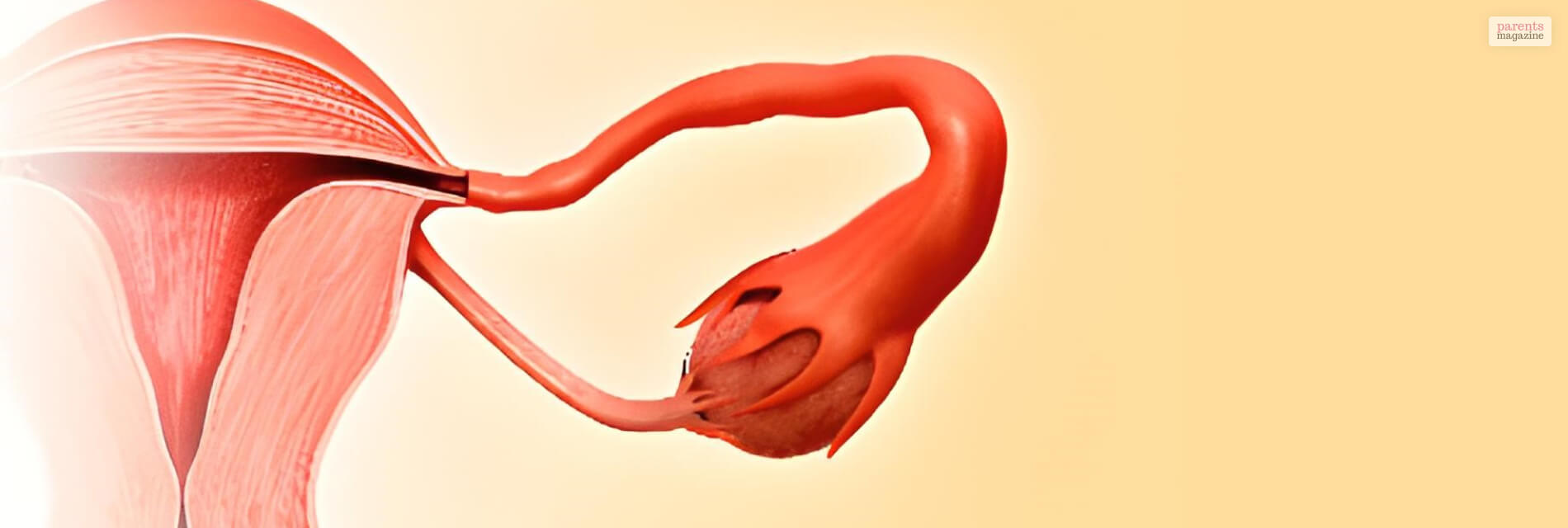
Can You Ovulate Without A Period?
Menstrual irregularities are something that has been so common that every second or third person is facing it. So if you are going through a phase of menstrual irregularities, then do not worry; you are not alone. About 14 to 25% of women face this inconsistent menstrual cycle at some point in their lives.
If you are worried about your ovulation after you have missed your periods or if you are having irregular periods, you might wonder, “can you ovulate without a period?” Ovulation and periods are closely related, but it is not impossible to ovulate if you miss your period. And especially if your menstrual cycle is irregular.
We are discussing a lot about ovulation and menstrual cycle. But is it clear to everyone what ovulation and menstrual cycle are? Let’s start with the basics first.
What Is Ovulation?
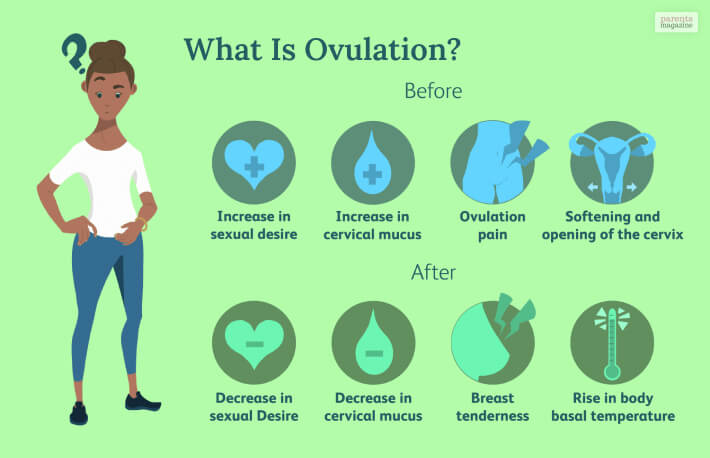
Ovulation happens when an egg matures and gets released from the ovaries after the follicle bursts open inside the ovaries.
Symptoms For Ovulation

Usually, there are some very evident signs that your body gives to tell you that you are, after all, ovulating. When you have a proper understanding of identifying these signals, it becomes easy for you to plan your life accordingly. For instance, you can postpone the trip you have been planning for a long or plan when to try for a baby within your ovulation phase.
Here is a list of all the prominent ovulation signs that your body might start giving out as soon as your ovaries are ready to make home for a baby.
Changes In Your BBT
The basal body temperature is the lowest temperature your body can record in a period of 24 hours. A day after you ovulate, the BBT can get a tad bit higher by just a few degrees. This temperature will remain this high till you start off with your periods. It might also drop a little before increasing.
Change In Your Cervical Mucus
Cervical mucus is basically the white vaginal discharge that so many women complain about. A few days before and after your ovulation, there might be a slight increase in the amount and change in the texture of the cervical mucus that your body produces.
The mucus might just become thin, clear, slippery, and stretchy – just like egg whites. This consistency helps the sperm swim to the eggs. The chance of conception is the highest when the mucus is clear and slippery.
Changes To The Cervix
At the time of ovulation, the cervix becomes softer, wetter, higher, and more open than usual times. You might not know exactly how it might be if you do not regularly check your cervix and see what it is like on normal days in comparison to the ovulation period. The vulva also becomes a lot more swollen and sensitive at the time of ovulation.
Cramping
Ovulation may cause a slight discomfort in the form of light twinges or cramps in your lower abdomen. This pain might be accompanied by pain in the lower back area. Abdominal and back pains are some of the most common symptoms of ovulation.
Spotting
There is a chance that you might experience very light bleeding or spotting at the time of releasing an egg. This bleeding happens because of the breaking of the follicle that surrounds the egg. As the blood turns brown over time, there is a good chance that you might see a brown or red discharge.
Breast Tenderness
Due to the increased levels of hormones during ovulation, your breasts may feel more tender than usual, along with being achy, heavy, and sore.
Increase In Sex Drive
Some women tend to feel more sexually active at the time of ovulation. Studies suggest that females are likely to have an increased libido at the time of ovulation.
Ovulation Bloating
While this is more of an uncommon symptom, some women experience a little bloating while ovulating. This goes unnoticed by most women and is impossible to check if you do not measure yourself every day. However, it is not something to worry about. Ovulation bloating goes away right after you are done ovulating.
How Are Periods And Ovulation Related?
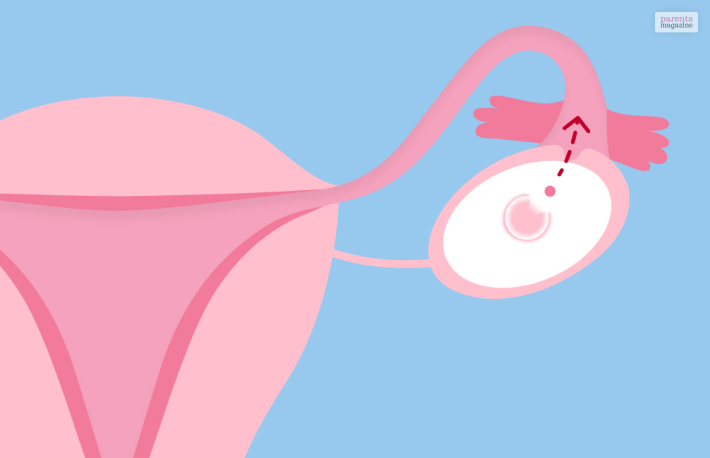
To know this, we have to know about the menstrual cycle first. It is a good idea to track your menstrual cycle. The basic way to identify your cycle is to monitor when your last period started and how long it lasted. Then will help you to monitor if you are missing your period or if it is irregular.
Also, monitoring your flow is, if you are bleeding heavily, or if you are bleeding even when it is not your time, is important to know. This also helps you to track your ovulation period if you are planning a baby.
Ovulation is a process in which your ovaries release an egg every month and prepare your uterus for pregnancy with hormonal changes. If ovulation happens, but the egg doesn’t get fertilized, that is when the lining of the uterus sheds and comes down through the vagina, and this is known as a menstrual period.
During a menstrual cycle, the estrogen level takes a hit in the first half, which builds and thickens the lining of the uterus and develops the ovaries to release an egg. If we consider the first day of the period as the 1st day of the new menstrual cycle, then around the 14th day of a normal and regular menstrual cycle, the level of progesterone increases and helps the womb to prepare for the embryo that is developing.
If the egg does not get fertilized, it gets absorbed back into the body when it falls through the fallopian tube and into the uterine lining. After this, the level of progesterone and estrogen drops after two weeks of ovulation, uterus lining begins to shed and exits through the vaginal opening.
Ovulation With Regular Periods
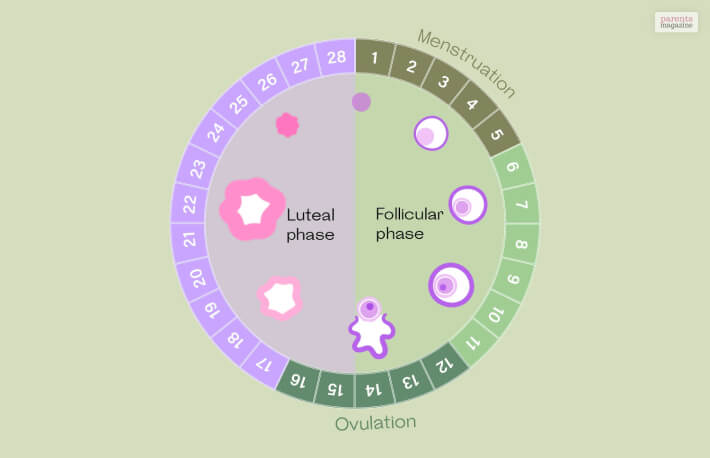
If we consider a normal menstrual cycle (28 days), a healthy woman will start ovulating from the 14th day of their cycle. If you have a regular menstrual cycle, it is way easier for you to conceive compared to women who have irregular periods.
Ovulation sticks or the ovulation predictor kits are almost 99% accurate in predicting the LH or luteinizing hormone surge, which actually happens before ovulation and can help to conceive by predicting the window when a woman is most fertile.
If you are getting your period regularly, then ovulation calculators can also be a tool for predicting your ovulation and the fertile window. All you have to do is put in the average cycle length and the first day of your last cycle, and it will keep calculating the fertile window for the coming six months.
Ovulation With Irregular Periods

If your menstrual cycles are irregular, it is likely that you will ovulate as well as release eggs irregularly. This is something that makes it difficult to determine the fertile window. This is something that will be an issue for your pregnancy.
An irregular menstrual cycle can also mean that you may ovulate but miss your period. There are certain factors that increase the chance of an irregular period. Those are:
- If your body mass index is greater than 25 or less than 20.
- If you exercise too much.
- Stress is an important reason behind irregular periods.
- Changing your birth control medications.
- Overactive IUD
- The usage of certain medications can promote irregular periods.
- Overactive thyroid
Can You Ovulate Without Having A Period?
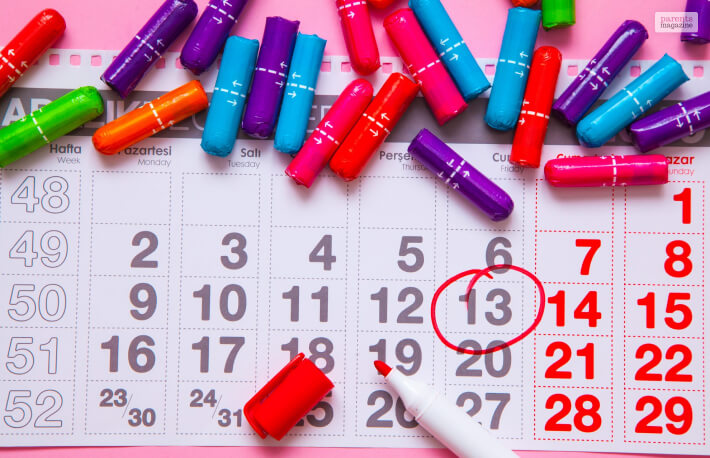
Are you not getting your period? But is it possible that you are ovulating even if you are not getting your period? Ovulation happens right in the middle of the cycle, which is around the 14th day of the current menstrual cycle if we consider it to be a 28 days cycle.
Then the egg lives in the uterus for about 12-24 hours; what happens to your eggs if you don’t ovulate? That means what happens to the egg if it is not fertilized? If fertilization doesn’t happen, then the egg disintegrates and is absorbed into the lining called the endometrium. After about 14 days of ovulation, the uterine lining sheds, and that discharge is what we call menstrual blood.
Can you still ovulate and not have a period? It is non a common phenomenon to ovulate without getting a period. But it is not impossible. There are two factors that can make this happen.
- If you are wondering, “Can you ovulate without a period and get pregnant?” Being pregnant is one of the reasons behind not getting your period. If you were trying to conceive, then congratulations! You are having a baby, and that is the reason you are not getting your period.
- The second reason is uterine scarring. There are some procedures that remove the tissues from inside the uterus to treat heavy bleeding, which can scar the uterus. This impacts the usual thickening of the lining of the uterus, which leads to ovulation without getting or period or a very light period.
What Is Anovulation?
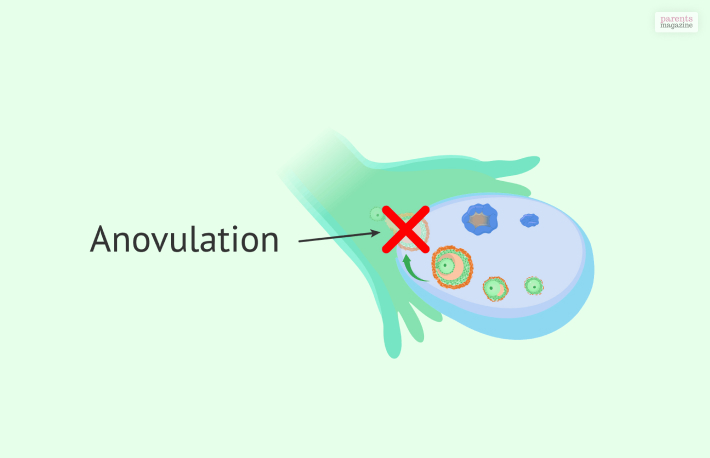
Menstruation actually happens when an egg is released from the ovary and is not fertilized; this is what we know. But you can still bleed and get your period without ovulating. This is anovulation. This bleeding is called anovulatory bleeding or abnormal uterine bleeding.
Period Without Ovulation Signs
- One of the popular signs of anovulation is having irregular periods.
- Having period bleeding that is extremely heavy or extremely light.
- Missing a cycle or two without being pregnant is a sign of anovulation.
- Lacking cervical mucus is another sign of anovulation.
- If your basal body temperature is irregular, then that is also a sign of anovulation.
But you might wonder, “why am i not ovulating?” One cause can be the imbalance in one or more hormones, especially that causes ovulation, like the Luteinizing hormone, Follicle-stimulating hormone, and Gonadotropin-releasing hormone.
- Hyperandrogenism or high level of androgens can cause anovulation.
- The pituitary gland is responsible for producing LH and FSH, which are required for ovulation to happen. If the gland dysfunctions, then that can cause anovulation.
- Low thyroid levels can be a reason behind this.
Can I ovulate without a period if I have PCOS?
PCOS is difficult to deal with. It can cause extreme levels of problems when you want to conceive with PCOS. PCOS is often connected to anovulatory cycles. As explained above, anovulatory cycles are cycles where someone doesn’t get ovulation.
This is a condition where the eggs don’t get released, and the shedding of the uterine lining also doesn’t happen. It means that someone with such a condition isn’t getting a period. When you aren’t getting periods and also have PCOS, this is a sign that you aren’t ovulating.
Can you Ovulate without a Period when in Menopause?
Perimenopause is something that occurs when your body makes a smooth transition to its reproductive years. This transition is something that occurs to someone when they are in their 40s. But it’s not uncommon for someone to get perimenopause at the age of 30.
The signs of perimenopause can vary from person to person. For some people, perimenopause can occur for a short time or can last longer. For some people, it can take more than four years.
But, a common symptom of perimenopause is missing a period. This is the period when ovulation becomes hard to predict. It’s also difficult to predict when you’ll have periods. It means that as you age, periods start to get shorter. In some of the months, you’ll skip periods completely.
However, when you have perimenopause and are still on your period, then you are still ovulating. When you skip periods, you probably didn’t ovulate in that specific month.
How Can You Tell If You Have An Anovulatory Cycle?
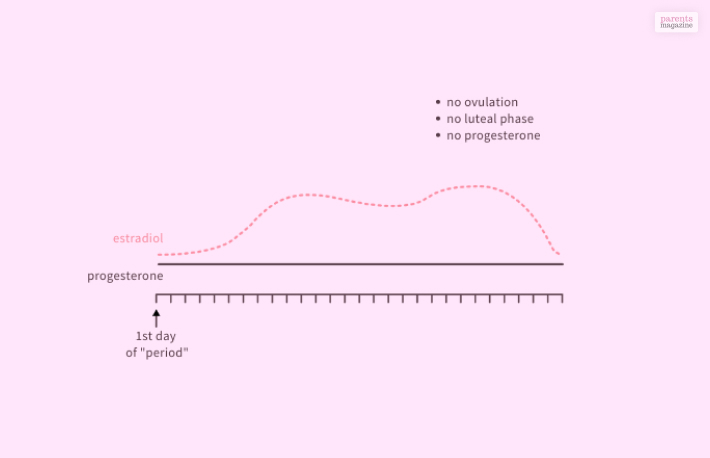
The basic way to know if you are having an anovulatory cycle is if you are getting irregular periods. But if you are trying for a baby, then it is best to investigate further and find out the reason behind this. There are tests that can be done to diagnose the reason. Those are:
- Blood thyroid levels
- Ultrasound for your pelvic organs
- Blood progesterone level
- Blood prolactin level
When Should You Seek Help?
If you are having irregular periods and you are worried about your fertility or trying to conceive, this is a time you should not wait or take any risks with yourself. Though ovulation without menstruation is not a cause of concern, but this can be a reason behind hormonal imbalances and can indicate some serious medical concerns.
Wrapping up!
Can you get pregnant without having a period? It is possible. Even if you have not had your periods for several months, there is a chance for you to get pregnant. The chances are very low compared to when you have a regular menstrual cycle. Can you ovulate without a period? Well, I hope this article has successfully answered all your queries. It is better to seek help and take the opinion of a medical supervisor.
You May Also Like To Read:
Already have an account?
Sign In
Create your account
User added successfully. Log in







